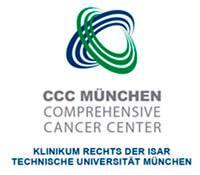Hirsutism is male-pattern excessive hair growth in women. Unwanted hair appears on the face, buttocks, and thighs. This condition is one of the most common reasons for visiting gynecologists and dermatologists. About 10% of all women suffer from hirsutism. This is not a separate disease, but a syndrome that occurs in many pathologies. Doctors in Germany conduct diagnostics to find the cause of excessive hair growth and then select a treatment method that will normalize a patient's hormonal levels.
Content
- Causes
- Diagnostics
- Treatment
Doctors use drugs of different pharmacological groups, depending on the cause of hirsutism, a woman's age and her plans to have a baby in the future. In rare cases, surgery may be required: removal of a hormone-secreting tumor or oophorectomy (removal of the ovaries).
You can undergo your treatment in one of the following hospitals: University Hospital Frankfurt am Main, Hospital Neuperlach Munich, or University Hospital Carl Gustav Carus Dresden.
If you book your treatment through our service, the Booking Health specialists will take care of your trip arrangement. You will be advised on the choice of a clinic and a treatment method. Our company's specialists will help you to apply for a visa, buy airline tickets and book accommodation. They will also help to translate medical records into German, communicate freely with the clinic's doctors in the same language, and provide medical insurance. Your personal medical coordinator will be always in touch with to answer any questions of interest.
Causes
The origin of hirsutism may be as follows:
- hyperandrogenic form associated with an increased content of male sex hormones in the blood;
- non-hyperandrogenic form without any increase in male hormones.
The most common cause of hyperandrogenism is polycystic ovary syndrome (75% of all cases), while androgen-secreting tumors and congenital adrenal hyperplasia are less common causes.
Among the causes unrelated to sex hormones, the main ones are taking specific drugs and endocrine disorders. The drugs that can cause hirsutism include corticosteroids, progestins, antiestrogens, some antibiotics, and interferon.
Hirsutism can also develop due to endocrine pathologies such as Cushing's syndrome, thyroid dysfunction, hyperprolactinemia, and acromegaly. However, facial hair growth in these diseases is only one of many symptoms and far from the most severe of them.
Hirsutism is not always a sign of a disease. This can be physiological: for example, in menopause due to decreased estrogen production or during a pregnancy due to increased concentration of prolactin in a woman's blood.
Diagnostics
The very fact of hirsutism is not difficult to establish. A clinical examination is enough for this. The task of doctors who conduct diagnostics is to find out the cause of hirsutism, determine the existing hormonal disorders in women with hirsutism, and assess their impact on their reproductive function.
Doctors use the following diagnostic tests:
- hormone blood tests;
- clinical tests, such as a dexamethasone suppression test;
- pelvic ultrasound;
- adrenal CT and brain MRI scans, if clinically indicated.
Treatment
Doctors mostly use conservative treatment. This depends on the goals of therapy. For most women who do not want to conceive a child in the future, menstrual cycle normalization and excess facial hair elimination is a sufficient goal of treatment.
Medications
Here are some of the main drugs for the treatment of hormonal disorder in women with hirsutism in Germany:
- combined oral contraceptive pills;
- antiandrogens;
- aldosterone receptor antagonists;
- glucocorticoids.
There is no ideal treatment that suits all women. Therapy is selected individually, since each type of drug has its own disadvantages and advantages, and it works in certain cases.
For example, oral contraceptives are safe and cycle stabilizing but are unacceptable for women planning a pregnancy and are not always effective. Aldosterone receptor antagonists are effective, but they take several months to achieve results and affect potassium levels in the blood, so therapy requires constant laboratory monitoring. Antiandrogens provide good results but can damage the liver and are not recommended for women of reproductive age, as they increase the risk of malformations in the fetus during a pregnancy. Adrenal hyperandrogenism can be treated with low doses of corticosteroids. Thus, the treatment may differ depending on the cause of hirsutism, a woman's plans to conceive a baby, her age, the hormone levels in her blood, the effectiveness of her previous treatment, etc.
Non-drug therapy
Non-drug therapy does not correct the hormonal levels but only improves the woman's appearance. This option can be used during the period when therapeutic results from the use of drugs have not yet been achieved (it takes 1-2 years to achieve the final result). Shaving, bleaching with hydrogen peroxide, and chemical or laser hair removal are used to deal with unwanted hair.
Surgical treatment
Surgery is rare. Surgical treatment is mainly used in the following two cases:
- Androgen-secreting tumors. They only cause 0,2% of cases of hirsutism. In 50% of cases, these tumors are malignant. They most often develop in the pelvis or abdomen. The treatment for these diseases is planned individually, depending on the type of tumor, its location and the stage of the disease.
- Severe hyperandrogenism in menopause. In this case, surgical removal of the ovaries is indicated. German hospitals perform it using a minimally invasive laparoscopic method: this is a low-traumatic operation with good aesthetic results, a low risk of complications and a rapid rehabilitation period. Doctors can also perform a hysterectomy: removal of the uterus with its appendages if there are concomitant uterine diseases, for example, hyperplastic endometrial processes.
You are welcome to use the Booking Health service to undergo your treatment for hormonal disorders due to hirsutism in one of the German medical centers. You can compare the cost of treatment in different clinics and make your treatment appointment at a favorable price. Our company's specialists will select the most suitable clinics in Germany for you and arrange your trip.
Authors:
This article was edited by medical experts, board-certified doctors Dr. Nadezhda Ivanisova, and Dr. Bohdan Mykhalniuk. For the treatment of the conditions referred to in the article, you must consult a doctor; the information in the article is not intended for self-medication!
Our editorial policy, which details our commitment to accuracy and transparency, is available here. Click this link to review our policies.
Sources:
Healthline
Verywell Health














